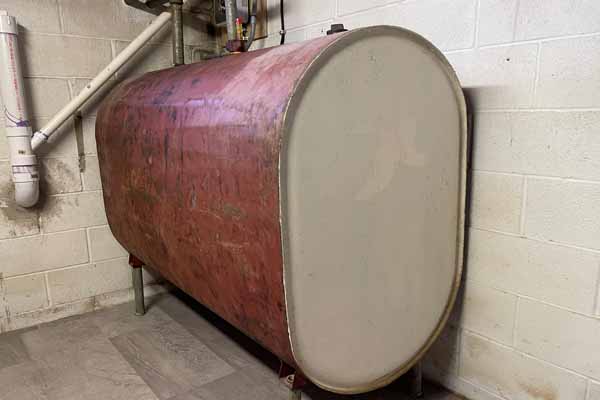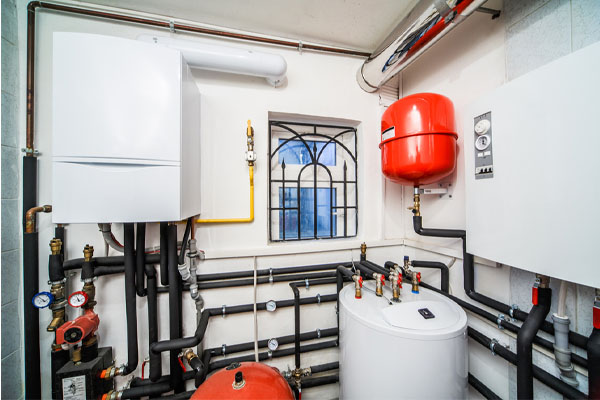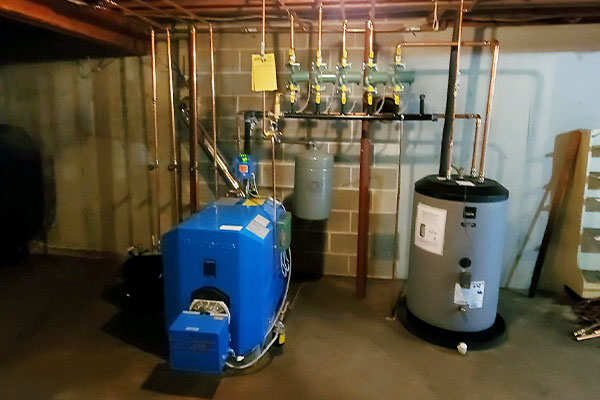There’s no doubt that heating your home is expensive. It accounts for almost half of a home’s monthly energy expenses during the winter season, making it more costly than any other appliance. To reduce costs, focus on your heating system and improve its efficiency. Several strategies are effective, like regular heating oil filter replacements. Keep reading to gain more information about this energy-saving strategy.
The Importance Of Regular Heating Oil Filter Replacements
This article explores oil filter replacements and how it impacts your system’s costs, performance, and service life.
What is a Heating Oil Filter?
Home heating systems that utilize fuel oil all have heating oil filters. The fuel passes through this cartridge to eliminate impurities before entering the burner. The filter keeps dirt and moisture from blocking the fuel nozzle. It also helps ensure that the pump works as it should. The heating system needs to have an operational filter so that equipment damage and system lockouts are prevented.
Related Article: What Is A Double-Wall Heating Oil Tank?
The Importance of Regular Heating Oil Filter Replacements

Filters trap dirt. Consequently, their surfaces get less porous as time passes. This means that the oil’s flow rate drops until it stops. Some dirt may even get into the system and clog it. Change the oil filter before this occurs. Keep in mind that a new oil filter will eventually get clogged with debris, so it is crucial to repeat the process as often as necessary. Make this part of your regular heating system maintenance checklist. Fortunately, replacing filters is a quick and easy process. It also comes with several rewards.
The Benefits of Replacing Your Heating Oil Filter
Changing the oil filter consistently brings positive effects. It may seem trivial, but HVAC professionals state that it is a crucial job for all oil-fired furnace and boiler owners. Don’t underestimate what this task can do for you. Here are a few of the pros that a heating oil filter replacement can bring you:
Related Article: 10 Ways to Save Money on Heating Oil Costs
1. Improve Heating Oil Equipment Reliability

Heating systems require a steady stream of clean oil to work. Any interference, like a dirty filter, can lower its performance. This means that the heating oil system may struggle to heat your home. Even worse, the system can break down, making you deal with a dangerous “no-heat” situation in the middle of winter. Don’t let this occur in your home. Improve your system’s reliability by conducting regular heating system maintenance. Ensure that the filter is replaced at fixed intervals to achieve reliable results.
2. Prolong HVAC Service Life
Fresh oil filters keep your heating system clean. They also help prevent hazards like dangerous clogs. They reduce the burden on individual components, extending their lifespan. The heating system also benefits from a prolonged lifespan, serving you as a reliable companion for over ten years. You don’t need to spend thousands of dollars because of premature HVAC system replacement. You will have more savings while enjoying the exceptional performance.
Related Article: Top 10 Boiler Problems Homeowners Experience
3. Maintain High Heating Efficiency

All heating units have a yellow sticker on it, otherwise known as EnergyGuide label. This label contains your system’s efficiency rating on it. Unfortunately, all heating system lose their efficiency as time passes. Components wear out, and dirt accumulates as time passes, decreasing efficiency gradually.
Inefficiency results in more fuel consumption, which isn’t good for the environment that’s already suffering from high carbon emissions. Book annual professional heating tune-ups for your system to keep efficiency high. HVAC technicians can conduct a thorough checkup during this visit. Remember to change the oil filter per the manufacturer’s suggested schedule. These tasks help ensure your HVAC system remains in tip-top shape.
4. Save Significant Money
Besides reduced emissions, clean oil filters help homeowners lower their energy costs. This is a particularly welcome benefit during periods of uncertainty when there are low supplies and high fuel oil prices. This helps ensure that your heating costs remain manageable.
Related Article: Can I Put Diesel Fuel in My Home Heating Oil Tank?
How Often You Should Change the Heating Oil Filter
Replacing the heating oil filter at least once a year is recommended. Change it before the start of the heating system so you are sure of smooth oil filtering. Check the system performance throughout the cold season and watch out for any decrease. You should increase the frequency to twice yearly if you experience filter clogs. Replace it halfway through the season so it doesn’t happen again.
How to Tell When Your Oil Filter Needs a Replacement
Here are several signs that point to an oil filter needing a replacement:
- Slow Starts: You know how your furnace or boiler behaves if you’ve used them for some time. Watch out for unusual behaviors like slow starts and odd sounds. The system may be experiencing difficulties due to a clogged filter.
- Dark Smoke: It isn’t unusual for a system to emit light-colored smoke. However, it is concerning if dark smoke rises from the chimney. This issue means that water is passing through the oil filter. When did you last replace the oil filter? As time passes, the old filter may be clogged with debris and moisture. You should replace it immediately.
- Subpar Performance: Do you feel cold in your home? Do any changes occur when you increase the thermostat settings? If your heating system isn’t providing sufficient warmth, the oil filter may be dirty. The same is true if your system turns off suddenly. The clog may be on the filter or a nearby part.
How to Change a Heating Oil Filter

Here are some steps on how to replace the heating oil filter:
- Safety should be your priority. Turn off the power before changing anything on the system.
- Put a pan under the filter to catch oil drops so there is no mess.
- Turn off the heating oil tank’s shut-off valve to prevent soil flow.
- Remove the oil filter canister’s base.
- Remove the spent cartridge and gaskets.
- Clean the filter canister and pump strainer before placing them in a fresh filter.
- Reassemble the canister and mount it in place.
- Open the supply valve again and switch on the power.
- Let gas escape by loosening the air bleeder.
- Run the oil burner and check how it behaves.
- Examine the system to check for oil leaks.
- Once everything is clear, dispose of the old filter properly.
Related Article: How Does An Oil Heating System Work?
Tips for Heating Oil Filter Replacement
- Oil can irritate our skin. Therefore, you should wear protective gloves on your hands. You should also wear an apron or something similar to prevent fabric stains.
- Handle the canister carefully. Give it ample support with your hand to keep it from dropping and getting damaged.
- Keep the rings and washers organized. They are small but essential filter assembly components, so do not lose them.
- Be vigilant. Leaks don’t always pop up right away, as it may take up to two days before they become obvious.
- It is a messy and dangerous task to replace the oil filter. A professional can do it if you are wary about doing this task.
Related Article: When To Repair Vs. Replace Your Heating System
Conclusion
Oil filters work so that boilers and furnaces are free from clogs. They help the system operate smoothly, but only for a set period. They must be replaced constantly to maintain high efficiency, performance, and dependability. Conduct regular oil filter replacements. If you can’t do it on your own, call for professional assistance.
Related Article: What Do Heating Oil Additives Do?
Call Tevis Energy For Your Home Heating Oil Requirements

Tevis Energy is a trustworthy heating oil delivery company that services central Maryland and southern Pennsylvania. Our company offers affordable and the most competitive heating oil prices in the area. Our goal is to provide you with excellent products and services. When you choose us to be your oil supplier, you can rest easy knowing that you will have correct and prompt heating oil deliveries at the best possible prices. Furthermore, we offer various heating oil delivery plans and financing options as a way to customize your oil deliveries. Be sure to call us today to learn more.
Tevis Energy has certified and highly trained HVAC technicians to cater to all your heating and cooling needs. We guarantee that each of our techs has the experience, skills, and knowledge to provide excellent HVAC services. Our team can assist you with installations, repairs, maintenance, and much more. Our superior HVAC solutions always come at affordable costs, and we back all of our work with a guarantee.
Call us today to learn more about the products and services our company offers. We provide free, in-home estimates. Click the link to view our service area.
You can click here to contact us now or call us at (410) 876-6800 to find out more!
